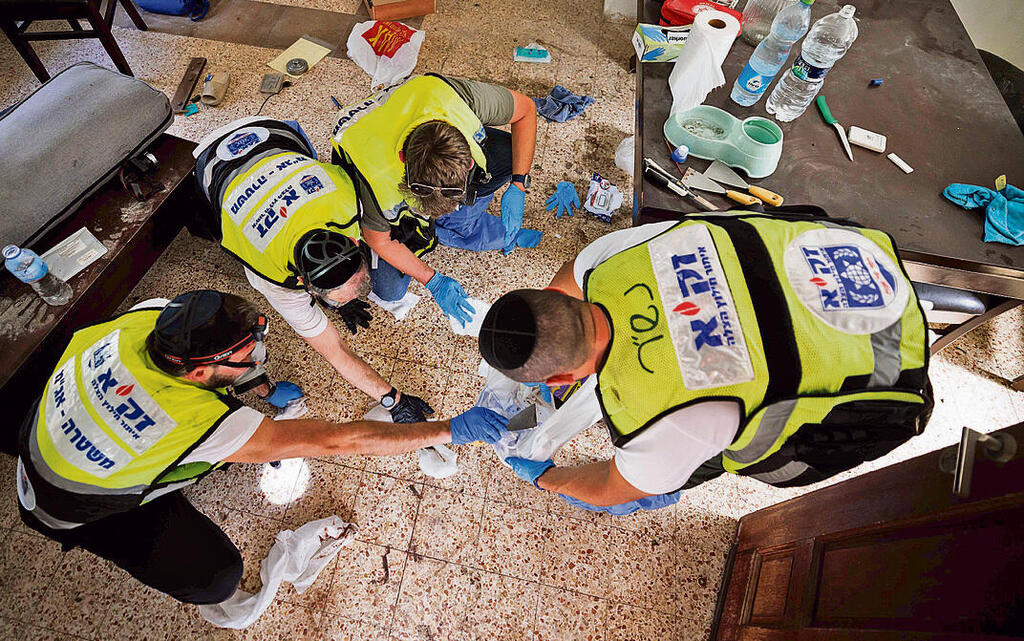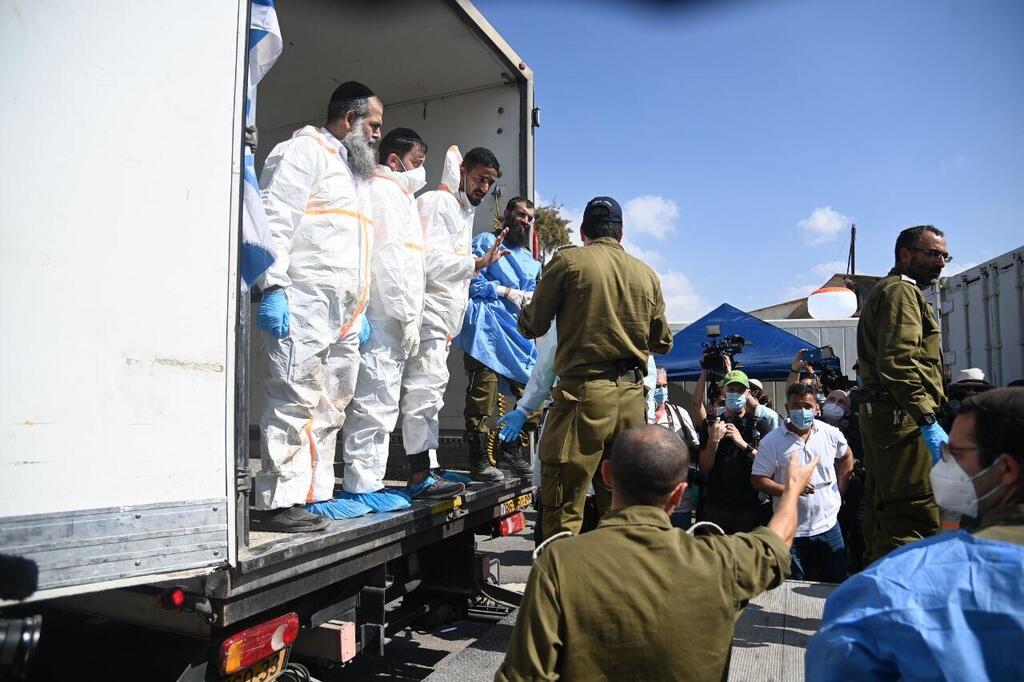The process of identifying victims is a crucial aspect in the aftermath of disasters. Those who undertake this challenging and sensitive task are performing a duty of utmost importance. However, like many public systems, those in charge of this task faced a significant hurdle on October 7.
Read more:
Typically, the police are in charge of the scene, tasked with gathering evidence and identifying signs of criminal or security breaches - these are essential for any subsequent investigations and for establishing culpability. However, in the wake of the Hamas attack, the identification process faced numerous obstacles. Various entities were involved in the process, including the military rabbinate, the Home Front Command, ZAKA, and ordinary citizens. Most of them had to prioritize the collection of bodies, leaving little time to pay adequate attention to other crucial evidence at the scene.
The situation was further complicated by the involvement of multiple organizations, some of which lacked coordination with each other, and the sheer number of bodies. This led to a chaotic situation that significantly hampered the collection and documentation of evidence for criminal or security purposes. Representatives from the military rabbinate argue that some of the body bags they used were replaced, resulting in damage to the scant forensic evidence they had managed to collect. "The police wanted to document, as part of the forensics work, and there was someone in ZAKA who repackaged so they could photograph their bags," they said.
Conversely, those working on behalf of ZAKA argue that body bags packed by various entities, including ZAKA itself, which contained forensic records, were replaced upon arrival at the camp and put into storage, not before. In response to the rabbinate's claims, they said: "We don't deny that we replaced damaged body bags. We did so to pack the body properly. We followed police instructions, we were activated by the Home Front Command. In times of war, that's how it is. We have to adapt."
A senior figure in one of the organizations that operated in the field for many days told Ynet and Yedioth Ahronoth, "It's amateur hour. Some of the bodies, packed by ZAKA, the rabbinate or the IDF, were opened by other forces and forensics to take two pictures, and as a result, forensic findings disappeared. Casings and other items were left behind during the bag replacements."
Moreover, over ten volunteers involved in the sensitive task reported that the packing of IDF casualty bags was done haphazardly, bags were replaced without preserving identifying details and landmarks, crucial evidence was left behind, and bags containing other findings, such as bullets, were discarded. Some volunteers even found bags in the area that had been carelessly discarded with findings they had previously packed.
The ZAKA organization stated, "ZAKA's focus was on clearing the spaces while preserving the scene as much as possible. It was not feasible to collect investigative findings in real time, and the spaces were packed in ZAKA or IDF bags, no bags were changed."
IDF spokesperson stated, "The Military Rabbinate Corps, in cooperation with the Israel Police and other military and civilian bodies, work tirelessly, collecting findings and evacuating victims from the field professionally while maintaining order and documentation."
The police have yet to respond.





